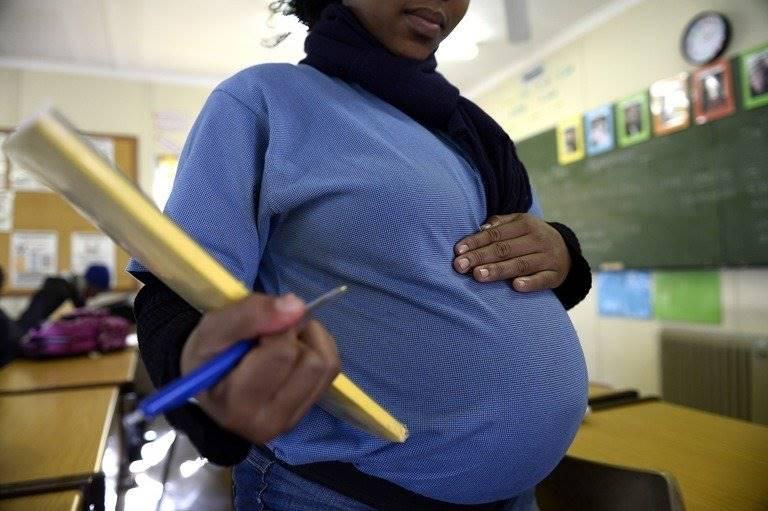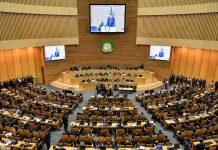Africa-Press – South-Africa. KwaZulu-Natal registered 18 550 births for children aged 10 to 17 during the 2019-’20 financial year.
According to Statistics South Africa (Stats SA), more than 83 000 children gave birth countrywide during the same period.
Of these, 12 671 births were recorded in the Eastern Cape, 10 833 in Gauteng, 13 129 in Limpopo and 7 211 in the Western Cape.
Stats SA revealed that more than 5 500 children aged 10 and 14 gave birth in KwaZulu-Natal, the Eastern Cape, Gauteng, Limpopo and the Western Cape in the 2019-’20 financial year.
The shocking statistics prompted the KwaZulu-Natal Department of Social Development and Health, traditional leaders along with child protection agencies and police in the Ulundi municipality to take action.
They said top of the agenda of the roundtable discussions was trying to find solutions to the high number of teenage pregnancies in the province.
Traditional leader Inkosi Nne Mpungose from the Mpungose Traditional Council in Ulundi said it remained parents’ responsibility to guide their children on health and reproductive health.
“Community members do not care anymore about children. They shift the blame to government,” he said.
“It is believed that teenagers engage in their sexual debut without protection, and this factor leads to a high rate of new HIV infections among teenagers,” said Mpungose.
Bishop Moses Sibiya from the Zululand Local Community Forum said teenage boys should be taught about using protection whenever having sex. He said South Africans should ask what motivated teenagers to have sex.
Gauteng records more than 23 000 teen pregnancies in one year, some moms as young as 10
“It cannot solely be reduced to peer pressure, poverty, lifestyle behaviour, social media, and the desire to experience [sex],” said Sibiya.
News24 spoke to several teenagers on the availability of condoms.
A 19-year-old woman said she has been sexually active since she was a young girl. According to her, she knows she should always use protection when engaging in sexual activities with her partner.
“My boyfriend’s mother is a nurse. She’s got five sons and knows they are active, so she provides the condoms for safety.
“Personally, I think condoms are very expensive, which is why I’m grateful that there are some free ones at public toilets and clinics,” she said.
According to the bubbly teen, it is always very difficult and awkward to talk about sex with parents. She said parents should start initiating conversations more.
“I had a very bad experience with my parents when they found out I was engaging in sex.
“I think it’s more difficult to have these conversations with our mothers. My mom’s mother never spoke to her about sex and that’s why I feel that teenagers engage in intercourse more because these discussions are not being had freely and with an open mind,” she said.
‘Birds and the bees’
A 15-year-old girl said she was very open with her mom about the “birds and the bees” talk.
“I’m comfortable talking to my mom about sex because we don’t have these conversations at school. At my school, there used to be free condoms in the bathroom, but there hasn’t been [any] for a while now,” she said.
A 16-year-old girl said engaging in sex at a young age wasn’t an issue for her.
“The real issue was the unavailability of condoms. We don’t work. We are in school most of the time. You would expect the schools or public toilets to have condoms, but some of them don’t. And it’s awkward to ask my principal why there aren’t condoms in the toilet. That’s just going to open another can of worms,” she said.
According to a 15-year-old, abstaining from sex until she’s married is her ultimate goal.
“I’ve seen girls at my school drop out of school because they fell pregnant by boys in higher grades, and while the boy carries on with his life, the girl is sitting at home. I don’t want that for my life.
“I also feel that sex talks must be compulsory at school. I feel like we don’t know about it but we want to be ‘cool’,” she said.
Lumka Oliphant, social development department spokesperson, said discussions on teen pregnancy started in February in Lusikisiki in the Eastern Cape, as a build-up to Child Protection Week in May.
The department’s deputy director for childcare and protection Nelisiwe Mthethwa said the issue of child pregnancies should be a year-round campaign.
“The 365-day programme of action will serve as an integrated plan to address social ills, including teenage pregnancy, which negatively impact children, families and communities,” said Mthethwa.
The social development department has proposed public education and awareness campaigns.
“This would include programmes such as social behaviour programmes,” added Oliphant.
Never miss a story. Choose from our range of newsletters to get the news you want delivered straight to your inbox.
For More News And Analysis About South-Africa Follow Africa-Press






